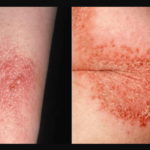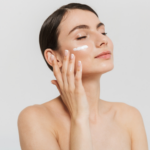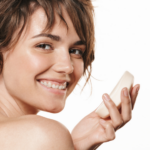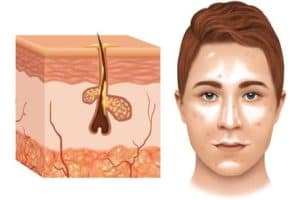Household bleach is one of the most common products that are used in the home. You rely on it to be able to clean different areas in the home, especially the bathroom. While it is very effective as a cleaning agent, you should always be careful when using it. You don’t want to get it on your skin.
What does bleach do to your skin?
Bleach is a strong ingredient that can cause damage to your skin. You can experience irritation and burning when it gets on your skin. If your skin regularly gets exposed to bleach over a long period of time, then it will lighten your skin’s pigmentation and damage the nerve tissue in it.
That is the reason why one must exercise caution whenever one is using household bleach. Read on to learn more about bleach and what bleach does to your skin!
What Does Bleach Do to Your Skin?
Most household bleach contains chlorine, and while your skin does not easily absorb chlorine, some of it may still be able to pass through. When you have too much chlorine in your body, then it can become toxic. As a result of this chlorine toxicity, your skin may burn.
Aside from that, you can also have an allergic reaction to other harsh ingredients that can be found in the bleach. The chance this happens will be much greater if you happen to have sensitive skin. When you experience an allergic reaction, you may get rashes and burn your skin.
Normal household bleach, such as the Clorox brand, is sodium hypochlorite. These household bleaches are about 6% sodium hypochlorite. This is fairly benign and won’t harm you, except if it is left on your skin for a few minutes.
When bleach (sodium hypochlorite) comes in contact with certain organic compounds, such as our skin, it breaks down and releases free chlorine ions. These chlorine ions are not something you want on your skin as they’ll cause the skin to burn and become inflamed.
What actually happens to the skin when it comes in contact with bleach? As it touches your skin, it weakens its natural barrier and this, in turn, makes it more likely to burn or tear. Aside from that, it can also make your skin lighter, but it also damages the nerves in it.
Aside from the skin, your eyes can also be damaged as a result of coming in contact with bleach. When bleach gets in your eyes, it can wreak havoc on the nerves and tissues there. Your eyesight may be compromised as a result of this. That is why you need to make sure that when you are cleaning using household bleach that you do not let it get in your eyes.
When you use the household bleach to clean, and you accidentally spill some of it on your skin, the effects of the skin can be minimized greatly if you clean it off immediately with soap and water. Use extra caution if you have a job that requires you to handle a large amount of bleach, such as cleaners.
So household bleach can pose a risk to your skin. To limit the risk, wear long gloves when using it. To completely remove this risk, then you can opt for alternatives to household bleach in cleaning your home. One alternative is to use natural cleaning ingredients that do not have the corrosive ingredients that come with bleach.
Don’t Use Bleach to Whiten Your Skin
You may have heard online of some using bleach to whiten their skin. You may have read some articles telling people of the success they had in achieving a whiter skin with the use of it. Now, even if you have found success stories of this and you think that this may be a quick way for you to achieve the white glowing skin you have sought for years, you should still not use it for this purpose. Read below to find out why.
One of the reasons that started the trend of using household bleach to whiten skin is a 2013 study conducted by the Stanford University School of Medicine. [1] The study said that they were able to successfully treat dermatitis in mice by bathing them with the use of an undiluted beach solution.
Some took this as an inexpensive way for people to reverse skin damage brought on by different conditions like aging, sun exposure, and radiation therapy.
However, there are dermatologists who are not in agreement with the findings of the said study. They believe that while it has achieved success with mice, that does not necessarily mean that it should be used on humans. In fact, there are no human studies that show that it can help relieve skin conditions in humans.
Since bleach has corrosive ingredients in it, it can even make other skin conditions worse, such as dermatitis. These corrosive ingredients will further irritate and inflame the skin of a person suffering from dermatitis. Yes, your skin may be lighter with the use of it, but it comes with a cost. This cost is the inflammation and even a higher risk you now have for cancer because of your lighter pigmentation.
You might think that since you don’t have dermatitis, you may not experience bad effects on your skin with the use of bleach. However, even with normal skin, it can also cause breakouts because of it having sodium hypochlorite. Sodium hypochlorite usually causes a chemical reaction in one’s skin, whether you have a skin condition or not.
When you use bleach to whiten your skin, you will also be limited in what you can do right after it. You cannot go outside because when you do so, your skin will be prone to being irritated and highly pigmented because of the reaction of sunlight with the bleach on your skin.
Even if you don’t go outside, if you use bleach on your skin, you also risk getting white spots that will be there permanently.
Also, you need to know that not all types of skin can get whiter from using bleach. There is only a certain skin type that can achieve fairness with it and that skin type is the one with the wheatish complexion.
If you would like to whiten your skin, such as your face, you are far better off using natural things to accomplish this, like, believe it or not, tomatoes.
What to Do When You Accidentally Spill Bleach on Your Skin?
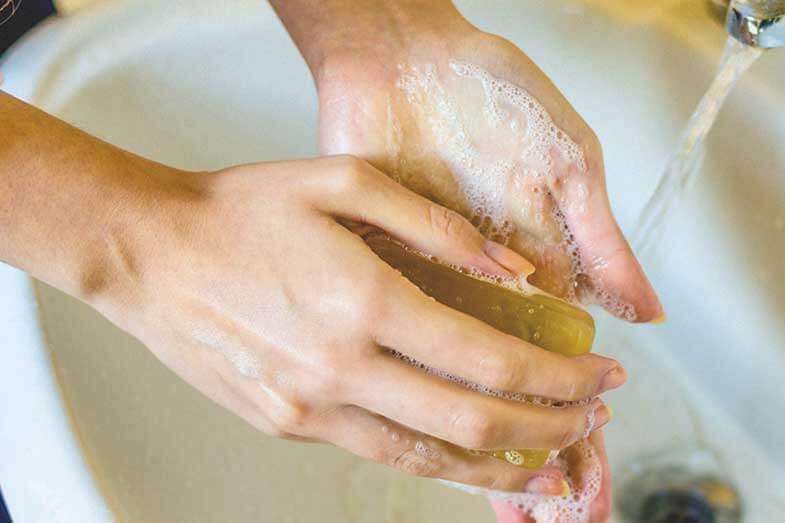
What if you are using household bleach in cleaning your bathroom, and as you prepare the solution, some diluted beach gets on your arms? What do you do then in this situation?
Well, the most immediate thing that you need to do is to wash off the spilled area with soap and water. You need to rub it vigorously under running water so that the chemical will be completely removed. Typically this will solve the problem.
However, if you find that after a few hours, the spilled area on your skin has become red and irritated, the next thing that you need to do then is to go immediately to a doctor to have it treated. You can choose to go to the emergency room in a hospital and tell them what happened to your skin so that they can give you the proper treatment.
This is also what you need to do when some bleach solution accidentally gets in your eyes. You need to wash your eyes thoroughly with water in order to remove the bleach from it.
If, after some time, you have a stinging or burning sensation in your eyes, then you should rush to the emergency unit in a hospital to get immediate treatment. This ensures that your eyes will not have permanent damage from the accident.
To avoid experiencing this kind of accident again, what you can do is to change your cleaning agent to a natural one. There are natural cleaning ingredients that are available in the market now that do not have the corrosive properties found in bleach which are harmful to the skin.
Conclusion – What Does Bleach Do to Your Skin?
Bleach has corrosive properties that cause irritation to the skin. For those who are suffering from a skin condition, their skin can easily be inflamed when it comes in contact with bleach. It can also lead to an allergic reaction on the skin, which can lead it to have irritation and burns.
On prolonged exposure, it can also cause pigmentation of the skin with nerve and damage tissue accompanying it. Not only that, but one can also be more prone to cancer as a side effect of this pigmentation. One’s eyes can also have permanent damage when bleach gets in them.
With all the potentially harmful effects it has on the skin, it is not worth using it to whiten one’s skin despite seeing articles of some people having success with it. If you want whiter skin, then choose natural ingredients to do so.
It may also be time for you to switch to another cleaning material that you will use in your home to clean rooms. This way, you do not risk your skin coming in contact with the corrosive ingredients of bleach.
Related reading:
How to Get Lighter Skin? (Natural and Fast Tips)
How to Get Pale Skin? (Fast, Natural Tips)
How to Brighten Your Skin – 12 Tips

![Neutral Skin Tone Defined [and Best Colors for Neutral Skin] neutral skin tone](https://skincaregeeks.com/wp-content/uploads/2021/05/neutral-skin-tone-150x150.png)

